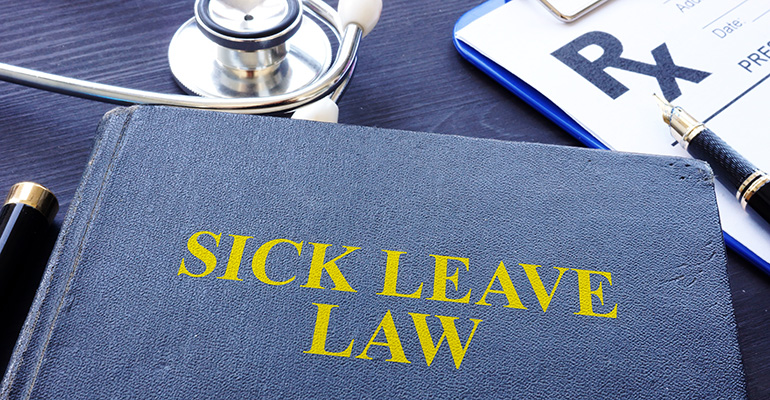
Short-Term Disability vs. Sick Leave: What’s the Difference?
When the unexpected happens, such as an illness or injury, employees need to understand their options in taking time off work. Knowing the difference between short-term disability vs. sick leave will give you the information you need about your employee rights and help you make the right decision for your situation.
About Short-Term Disability and. Sick Leave in Florida
Short-term disability is not employee leave. It constitutes a temporary leave of absence. It is a benefit that many employers offer that can be purchased and taken out of your paycheck. Short-term disability typically pays a portion of your wages (around 40-60%), and – depending on your company policies – you may need to wait 7-14 days before you can claim it.
Can you collect short-term disability and sick pay? Your employer may require you to use all your paid-time-off (PTO) and/or sick time before they will allow you to take it.
Many employers will offer sick pay benefits, giving you a certain number of hours per year of employment. For example, some employers will offer 40 hours of sick leave per year in addition to PTO/vacation time. Employees do not have to pay for sick leave out of their paycheck and typically receive their full wages for those hours.
What are the Qualifications for Short-Term Disability vs. Sick Leave?
Short-term disability is an option for taking time off for illness or injury that is available 90 days after coming to an organization. It is typically available only to full-time employees, but there are exceptions. For an employee to use this wage replacement benefit, they need to have a doctor-certified personal injury or illness.
Sick pay benefits will vary depending upon your company’s policies. Full-time employees often receive a certain number of hours after a predetermined length of time on the job. Part-time employees may be eligible for sick leave as well. Many employers will only allow you to use your accrued sick leave due to illness or injury or caring for a sick family member.
How long do Short-Term Disability and Sick Leave Last?
Short-term disability is a benefit that can extend longer than FMLA. Depending on the company, it may be able to utilize for up to 26 weeks, which can be extremely valuable for individuals who require an extensive recovery time for an illness or injury.
The duration of sick leave will depend on the hours an employee has accrued. Check with your human resource department to ensure your accrued hours are correct under your employment policies and agreements.
Short-Term Disability vs. Sick Leave: Employee Rights
Since Florida is an “at-will” state, your employer can fire you while you are away from your job due to an illness or injury — as long as they are not violating federal or state law. Employees do have certain protections under FMLA and ADA. Depending on your circumstances, if your employer did not have a legitimate, nondiscriminatory reason for firing you while you were on FMLA leave or did not work with you to provide reasonable accommodations when you were ready to return to work, you may want to speak with a wrongful termination attorney.
If your company provides you with sick leave hours, you have the right to use them — and you should be protected as long as you follow company policies regarding notifications and using your sick leave time.
It is not uncommon for unexpected illnesses and injuries to arise. Knowing your rights regarding short-term disability vs. sick leave will not only empower you to make the right decision for you and your family, but it also provides critical information if you get fired or retaliated against by your employer.
If you feel you have been wrongfully terminated or retaliated against because you took short-term disability or sick leave, contact Wenzel Fenton Cabassa, P.A., for a free consultation.
Please Note: At the time this article was written, the information contained within it was current based on the prevailing law at the time. Laws and precedents are subject to change, so this information may not be up to date. Always speak with a law firm regarding any legal situation to get the most current information available.








